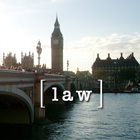
|
OIL GIANT MAY FACE RULING ON FORCED LABOR IN BURMA
29 July 2004 A Burmese woman, who was beaten and thrown with her baby into a fire by regime forces who sought to relocate her to a forcible labor camp set up to build a pipeline, filed suit in U.S. court against Unocal in 1994. The Burmese dictatorship, in order to provide cheap labor for the Unocal pipeline project, ordered the relocation of the plaintiff's entire village, committing them to forced labor to fulfill the pipeline contract. In 1997, a U.S. court ruled that U.S. corporations and executives can be held liable for participating in, ignoring or creating circumstances where individuals in foreign countries are subjected to brutal violations of international human rights laws. The court specifically found that:
Adding that Unocal likely knew that labor for the project was in fact "forced labor". This summer, according to Earth Rights International, "the Court will determine whether plaintiffs will be allowed to present evidence that Unocal was a joint venturer in the project, that its subsidiaries acted as Unocal's agents, that Unocal was unjustly enriched by abuses on the project". The case is only one of many where corporations have argued they cannot be held liable for the actions of host governments related to projects they may benefit from; U.S. jurisprudence appears to be moving in the direction of accountability, finding with more frequency that knowing complicity in illegal activities that violate human rights laws can be related to direct participation, thus rendering them eligible for tort cases and even prosecution here in the U.S. [For more: ERI] | ||||||
|
|||||||


